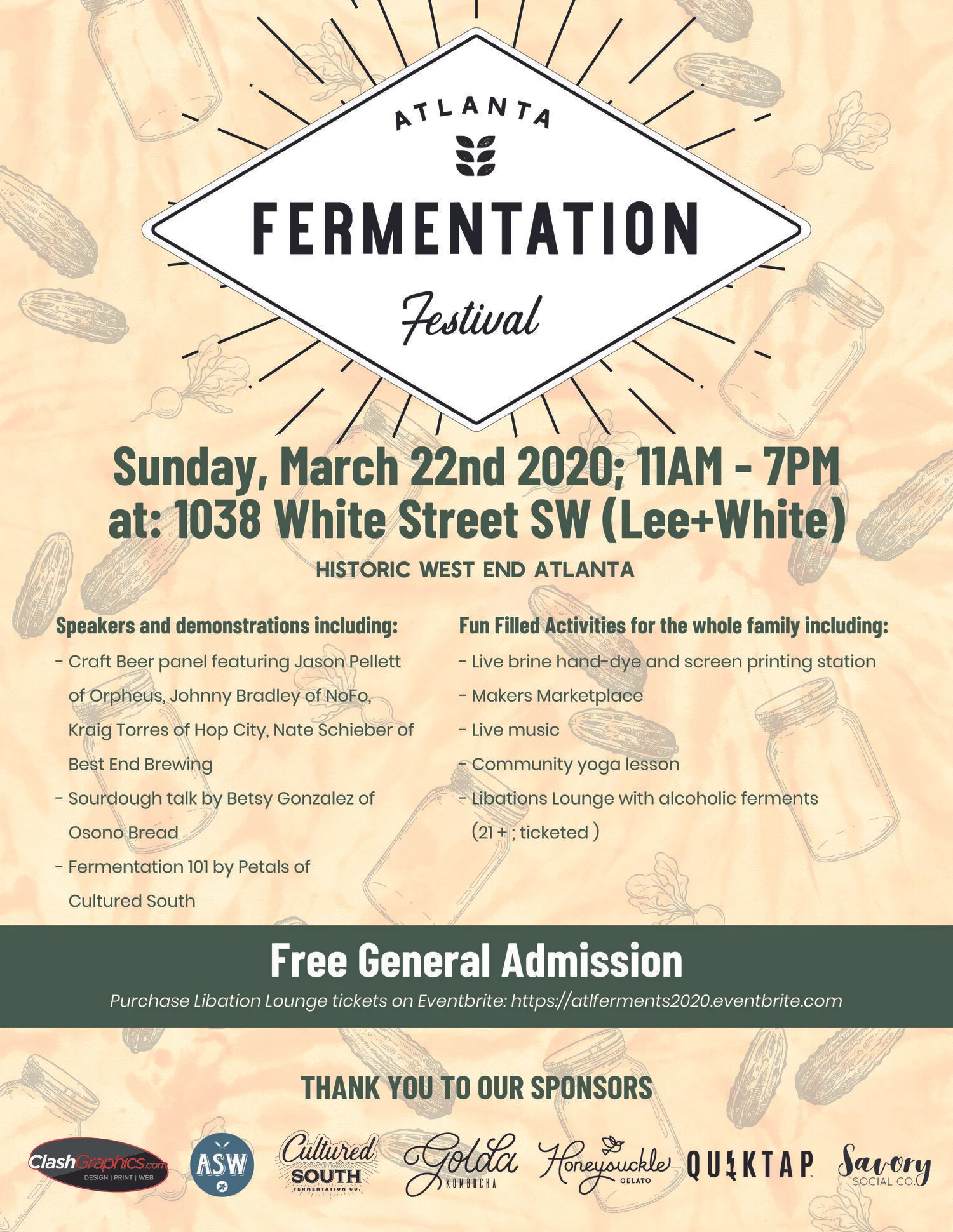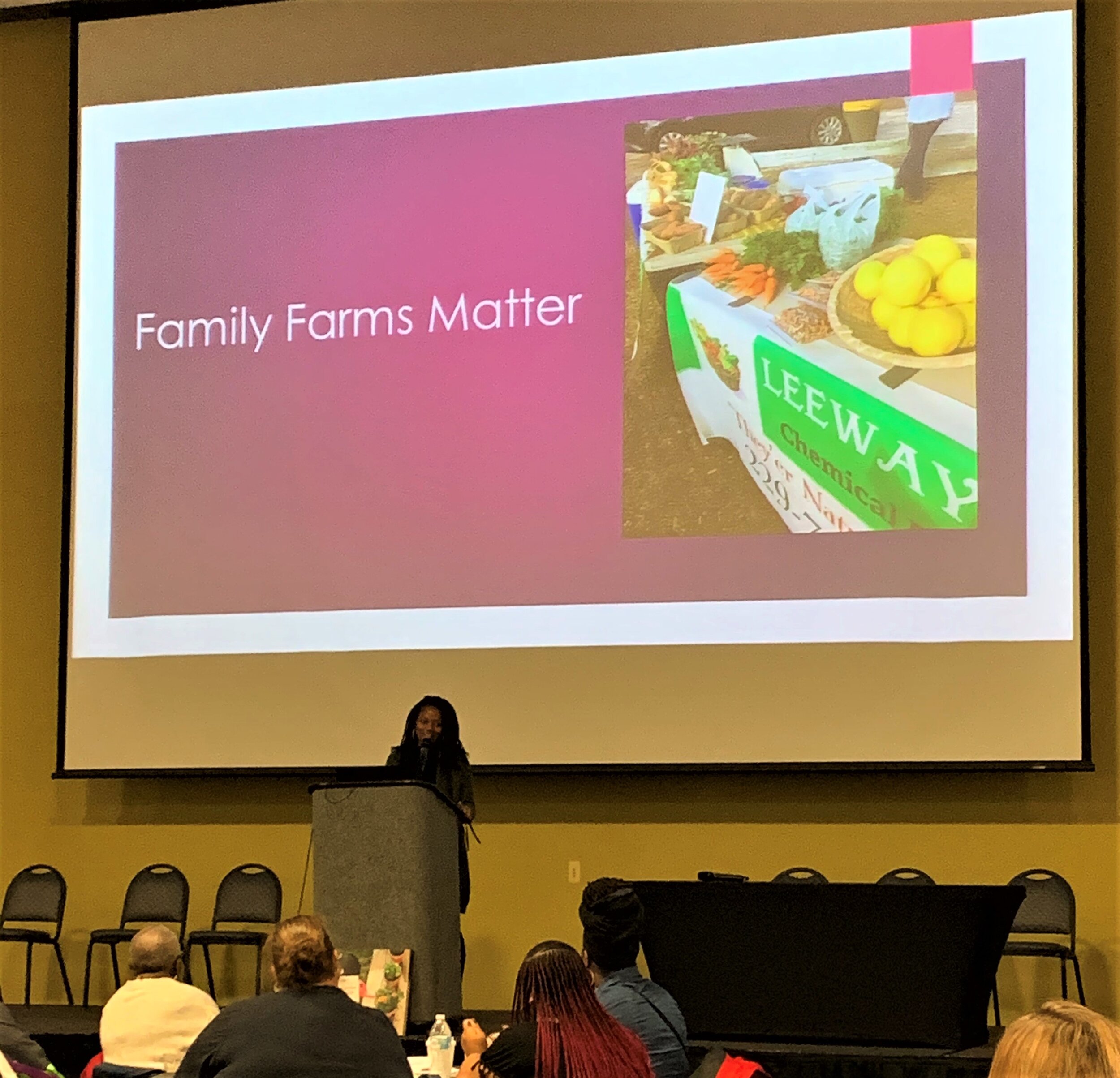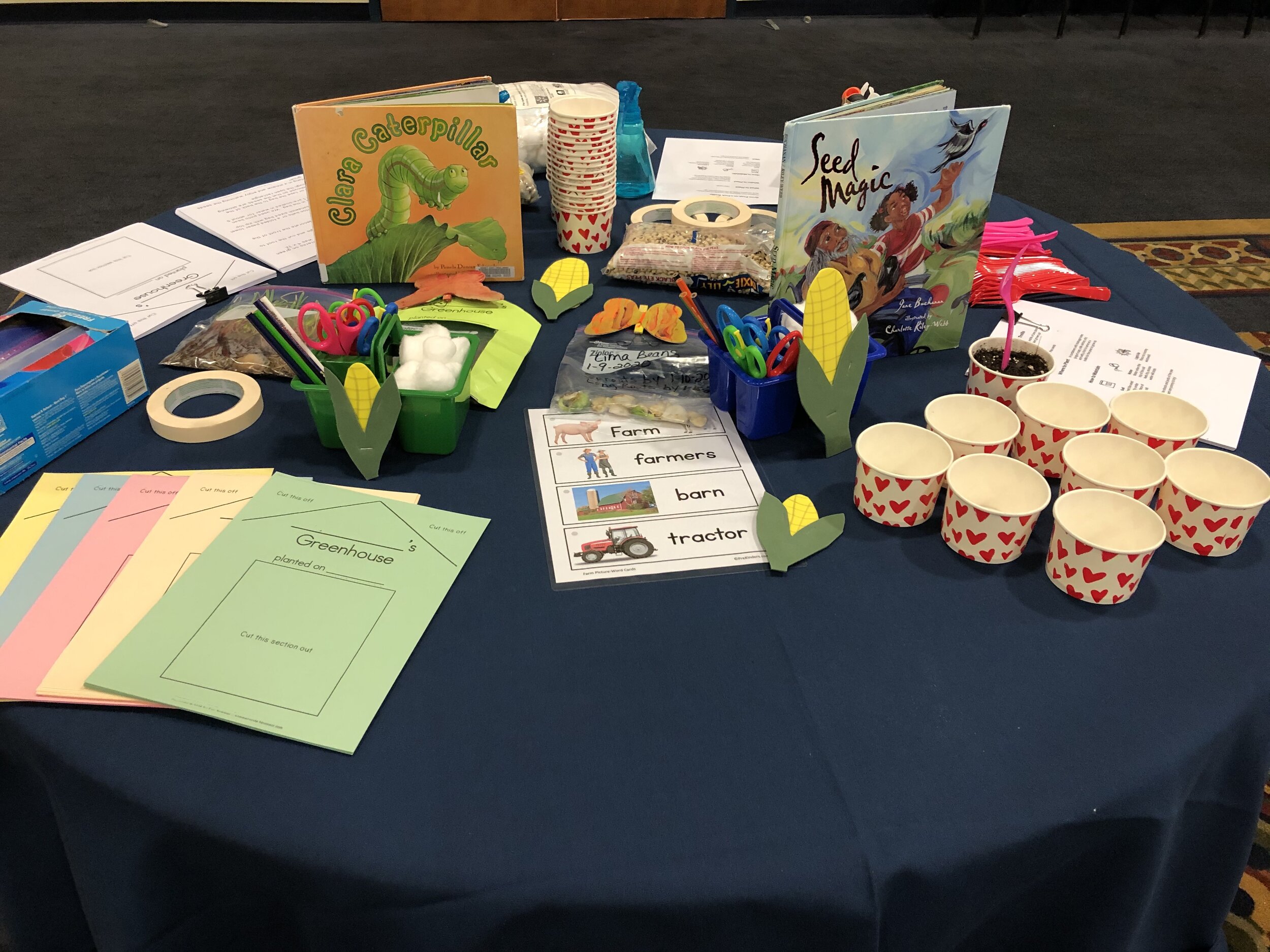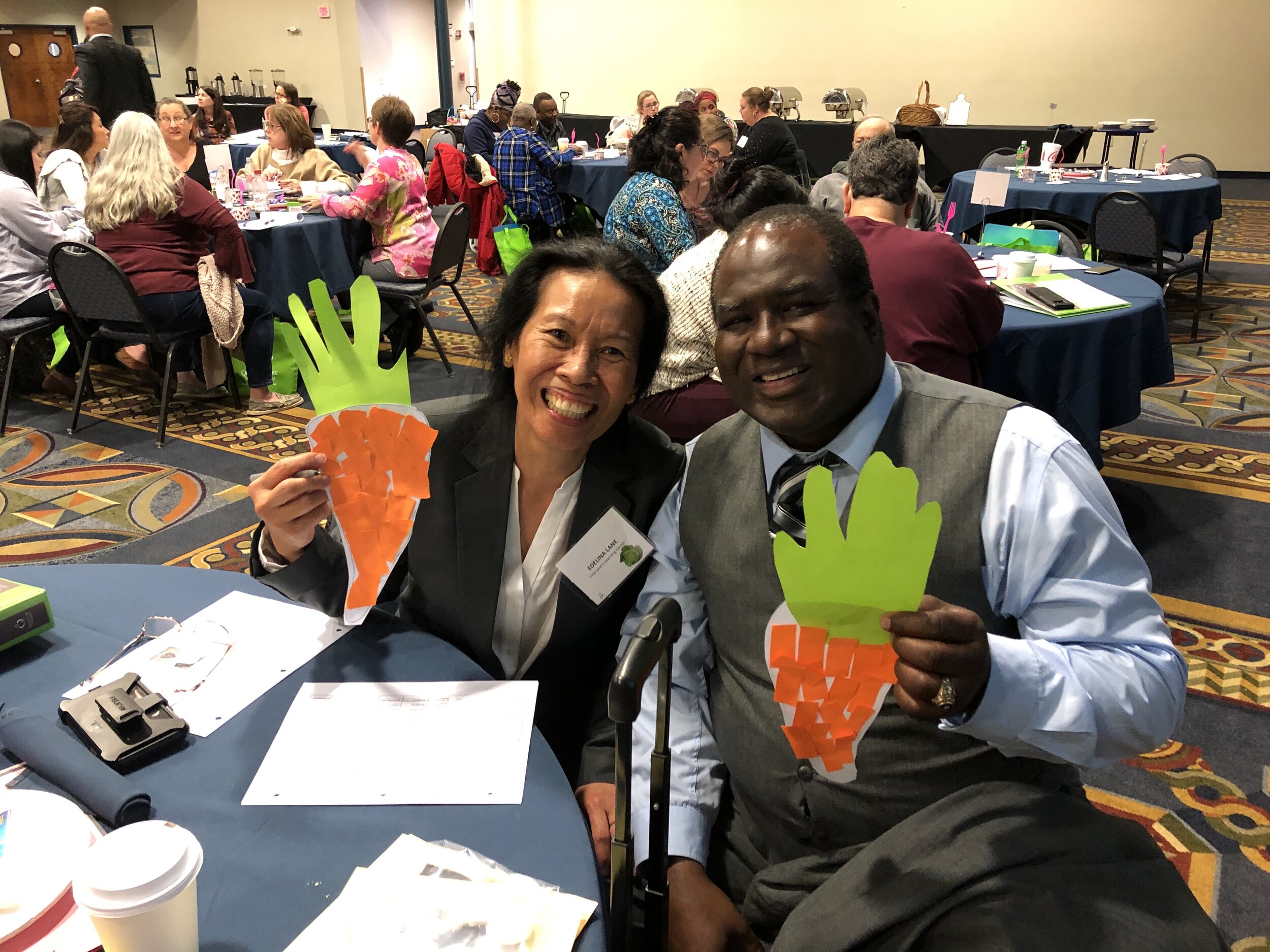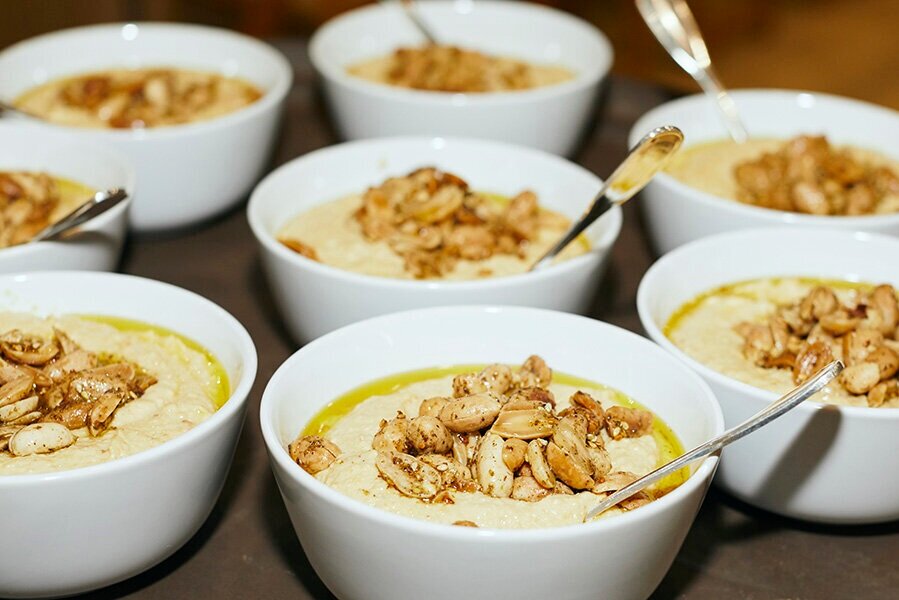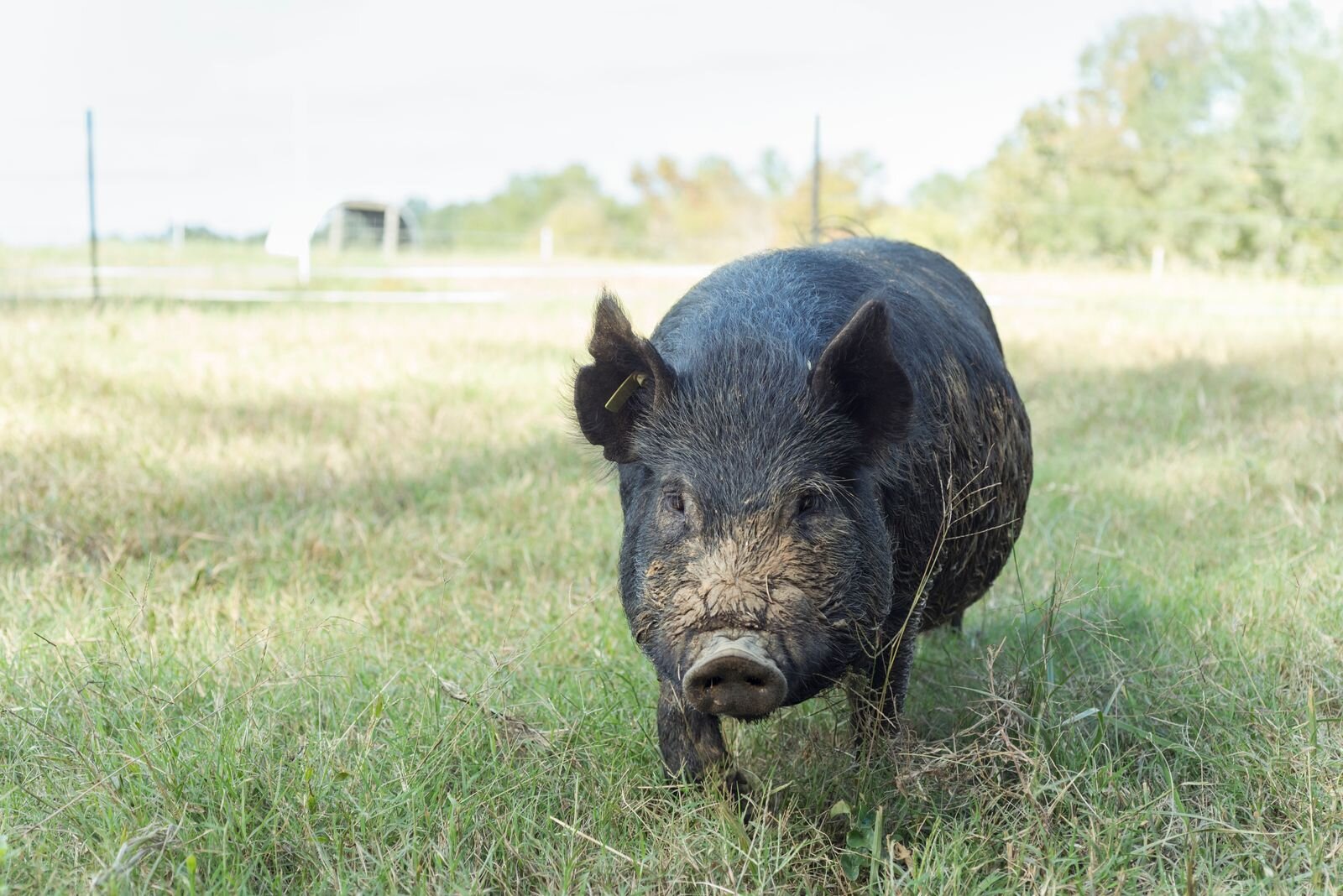By Porter Mitchell
Cathy Payne lives on a quiet street near Athens, Georgia, lined with mature trees and yards with trimmed beds of roses. Cathy is middle aged with short, bright silver hair and a welcoming personality. Her enormous cat, Chico, spreads out in a sunny spot in her kitchen as Cathy pulls out her phone to show photos of a charcuterie board from the famous 5 and 10 restaurant downtown. The usual spread of cheese and gherkins are there, along with a cut of cured Guinea hog—it's a deep, bloody red with a half inch cap of fat running the length of the top.
“We always call the restaurant before we go to ask if they’re serving Guinea hog,” Cathy said. “They always just do a beautiful job with it.”
Cathy beams as she explains the different preparations, 5 and 10 uses with the Guinea hog, and how the chefs rave about its rich and complex flavor.
She’s too modest to say it, but she knows she’s one of the reasons the breed still exists. She’s spent the past twenty years researching, breeding, and promoting the rare heritage pig.
Heritage livestock are like heirloom vegetables—they are not hybrid crosses of two or more different varieties, and they retain the original genetics of their line. They often are better suited for a specific environment and are generally more disease resistant and hardy than their more widespread counterparts. Heritage livestock breeds—whether goats, pigs, poultry, rabbits, donkeys, or cattle—have historical roots in the United States and cultural significance.
“Livestock are a part of our shared history,” notes Cathy.
And as diseases threaten to wipe out genetically similar animals like the common Holstein dairy cow (nearly all of them are descended from one of two sires) genetic diversity is becoming an increasingly large part of the conversation around livestock.
Cathy’s work in livestock conservation began on her small farm, Broad River Pastures, roughly twenty years ago. Cathy and her husband John moved to Elbert, Georgia in the early 2000’s to begin farming and homesteading.
“Back then we had a lot of heritage livestock—mostly rabbits, but Gulf Coast Native sheep too.” Cathy heard that someone in her county was getting a rare pig shipped from Texas, and she went to investigate. “I met my first Guinea hog boar—he was so docile, he was so gentle. I was already involved with heritage livestock, so the seed had already been planted.”
Cathy was hooked.
She spent the next several years learning everything there was to know about the Guinea hog, which didn’t amount to much back then. The breed almost went extinct in the 1980’s as factory farming became the norm. These new and larger farms demanded breeds that grew to enormous size quickly. There simply was no room for a small, hardy, slow-growing pig in the new ultra-industrialized world of pork farming.
In the early 90s, a 14-year-old girl took on showing the breed for a 4-H project and establishing the Guinea Hog Association, but it didn’t gain traction. There were a handful of small Guinea hog herds registered with the association, but they were too closely related to provide the necessary genetic diversity to bring the breed back from the brink of extinction
Cathy sits in an enormous wooden chair in her cozy parlor. She chides her cat for trying to eat the aloe plant again and continues: “There were rumors that there were other herds throughout the southeast and in Indiana, but no one knew where they were.”
Cathy began looking, spending years as a de facto private detective traveling around the country looking for the lost Guinea hog herds, coaxing farmers to sell her their stock, persuading breeders to register with the official Guinea hog group to get an accurate census, breeding the hogs on her farm, and keeping careful records to ensure genetic diversity.
“I found a farmer in Mississippi whose family had Guinea hogs for four generations—back to 1900,” says Cathy about her travels around the country. “I struck up a relationship with the farmer and his son, and one day the son called me. He said, ‘Daddy is dying, he wants you to have some of his herd.’” Cathy took the pigs home and added them to her growing herd, ensuring the lineage that had been in this farmers’ family for so long could continue.
When asked about the pig’s name, Cathy explains patiently that no one really knows why they’re called Guinea hogs. She’s been asked this question over and over again. “Sometimes the word ‘Guinea’ was used as a diminutive to mean small, or the breed might have ties to Guinea in West Africa.”
The Guinea pig is relatively small for a hog, topping out at roughly three hundred pounds. They have black skin and coarse black hair with a long snout, distinctive round cheeks, and triangular upright ears.
“They were a poor man’s pig,” notes Cathy. “They could be raised in a smaller area and could forage most of their food.” Poor farmers and sharecroppers raised Guinea hogs throughout the South beginning roughly around the time of the Civil War through the mid 20th century.
They relied on the pig’s meat for food and its thick layer of fatback to grease their machines and provide much needed extra calories after a long day of backbreaking work. Unlike commercially raised breeds, Guinea hogs have a strong instinct to forage—they'll find small plants, grass, tubers, acorns, nuts, and even snakes and rodents to eat. “They need roughly a fifth of the food that other breeds need,” says Cathy. “They’re a thrifty pig.” This, combined with their smaller size and docile temperament made them the perfect pig for poor farmers. The pigs were independent enough to find most of their food, but gentle enough to be handled without risking serious injury from a boar’s bite.
Thanks in part to Cathy’s efforts, the Guinea hog has seen a surge in popularity amongst the homesteading community. The very qualities that made them a perfect pig for small Southern farmers make them perfect for today’s homesteaders as well. The Thrifty Homesteader, a popular website in the homesteading world, heralds it as “the ultimate homestead hog” with its small size, strong foraging skills, and docile personality.
Cathy wrote the book on Guinea hogs, literally. She pulled out a copy of “Saving the Guinea Hogs: The Recovery of an American Homestead Breed,” the first written history of the breed and a practical guide to preserving heritage livestock.
“We preserve our national forests, we preserve our historic buildings, and we should preserve our animals,” she explains. “Livestock are an integral part of our cultural history.”
Check out Cathy’s book, “Saving the Guinea Hogs: The Recovery of an American Homestead Breed.”
Learn more about the work of the Livestock Conservancy and heritage breeds by visiting their website.
Porter Mitchell is Georgia Organics’ Farmer Services Coordinator. She can be reached at porter@georgiarganics.org.



























